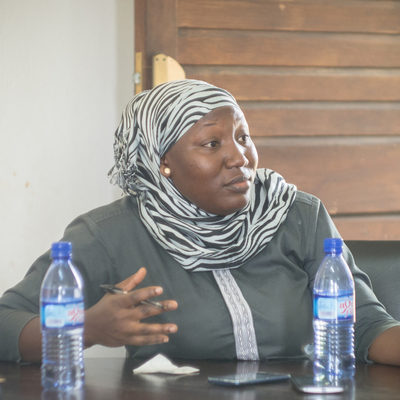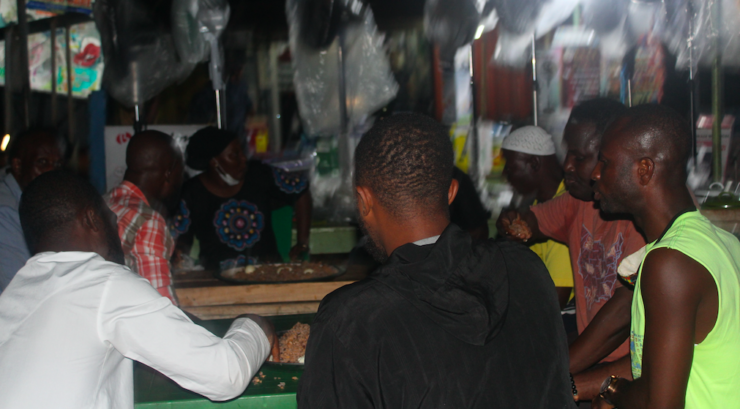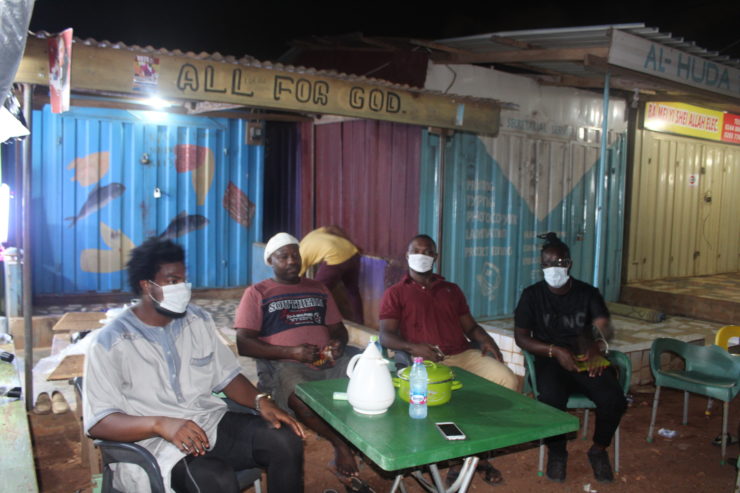Rashida Alhassan Adum-Atta
The Ramadan in Ghana
It has been 22 days since the Month of Great Blessings – Ramadan – began and 9 weeks since Ghana recorded its first Coronavirus case. Following the implementation of a partial lockdown of some key cities of the country on March 30, 2020 and the subsequent lifting of this lockdown on Sunday April 19, 2020, the pattern of life and events around the country has changed significantly. Here in Madina Zongo, where I am conducting research on Food and Inter-religious co-existence, life has not been the same. The Holy month of Ramadan started with speculations on WhatsApp and other social media platforms, with people suggesting that the Chief Imam should give a Fatwa on whether Muslims could fast since a “common enemy was being fought” and for that matter “the entire Muslim Ummah was at war”. A communication from the office of the National Chief Imam in response to these suggestions directed that Muslims fit to fast were entreated to do so. Muslims were further entreated to seek God’s mercies against this “common enemy”. This directive created anxiety among Muslims predominantly in the lockdown areas, including Madina Zongo, and many hoped for a lifting of the lockdown before Ramadan.
Ramadan is the ninth month of the Islamic lunar calendar, and for Muslims it is the month during which the holy Qur’an was revealed to the Prophet Muhammad. Remembrance of Allah, charity or generosity through sharing and providing for the poor and needy, and the annual Zakat is upheld during this season. Qur’an, 2:183 states; ‘O ye who believe! Fasting is prescribed for you, even as it was prescribed for those before you, that ye may ward off (evil)”.
Negotiating Unusual Complexities
Across the Zongo area is the Madina market, where there is evidence of active crowd amidst the observation of the so-called social distancing protocols. My interlocutors at the market are praying to God for an end to this pandemic. They are affected by the lack of patronage of their goods, even the owners of grinding mills are feeling the pinch of the pandemic. They argue that during this season, there is an increase in food production, and people would rather use commercial blenders to process their food items in bulk than to waste time blending food ingredients in bits at home. People say they have witnessed relatively high cost of food, especially fruits and vegetables, during this period. This rise in food prices appears to be nationwide, and has been experienced since Ghana started recording its first COVID-19 cases and people went into panic buying for fear of a possible lockdown. Issah, a butcher at the Madina Market, blames the closure of the borders as the reason for increase in meat prices. These market people hope and pray that God will “show mercy to his children” to ease the prevailing hardships.
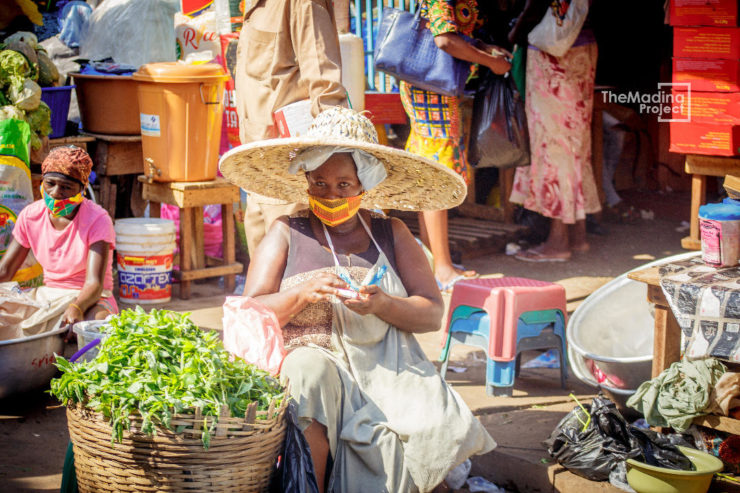
(Picture by David Kwakuktse)
Unlike previous seasons, this year’s Ramadan which began on April 24, 2020 has been entangled with the global pandemic: COVID-19. The first day of Ramadan was received with mixed feelings among Muslims across the country, and Madina Zongo was no exception. This was because the Corona-virus was still trending and the news was all about keeping safe, washing hands with soap under running water, heeding to social distancing protocols, and wearing of masks. For these reasons, not much activity was noticed during Iftar on the first day of Ramadan.
The pandemic has had a great impact on food vendors, so much so that the start of the Ramadan almost went unnoticed in their sales. I noticed the glaring absence of crowds at various mosques where some individuals constantly brought food donations or Sadaqa. The sight of relief during Iftar as Muslims ingest different types of food and the look of renewed energies from the day’s religious exercise of abstinence obviously missing this year. A stroll from Zongo junction to Zongo shortly after Iftar did not resonate with previous experiences. Everything was different from the previous Ramadans I had observed over the last three years, when Muslim and Christian food vendors in Madina normally rescheduled sales to the late afternoon to allow Muslims to purchase towards the late evening when they broke their fast. In contrast to the previous years that offered an abundance of ‘Hausa koko’ (porridge), ‘Baga’ (lumpy porridge), ‘Lamugie’ (date fruits packaged in polythene bags, and priced according to sizes), fruits, Maasa’ (millet doughnut), and other annual food delicacies, as well as an extravagance of aroma, this year seems desolate. The few sellers who showed up wore a mask, attempting to practice social distancing protocols. In previous ethnographic works, Ramadan was described as a time for spiritual fulfilment through self-restraint or ascetic discipline, as well as a period for tasting Islam. Speaking to me in 2018, Emelia, a resident of Madina, explained in Twi(one of the major languages spoken in Ghana) that food prepared during Ramadan tasted differently. Struggling for words, she suggested that the season gave the foods another meaning, adding that one can taste, smell and or feel the season in her predominant Muslim locality of Madina Washington, during Suhoor[1] and Iftar[2]. This year, Emelia had a different story about Ramadan. Speaking to her on the phone, Emelia was happy to hear from me after she had last seen me in the market in 2019. After exchanging pleasantries, I asked her about her experience during this year’s Ramadan. She screamed on the other side of the telephone saying “eeei! Madam Rashida, with this Corona, I can’t even smell the Ramadan, the protocols of going out is so scary…”. Ramadan in Madina is a memorable season for religious piety and communal sharing, that also includes Christians, but now everything is different!
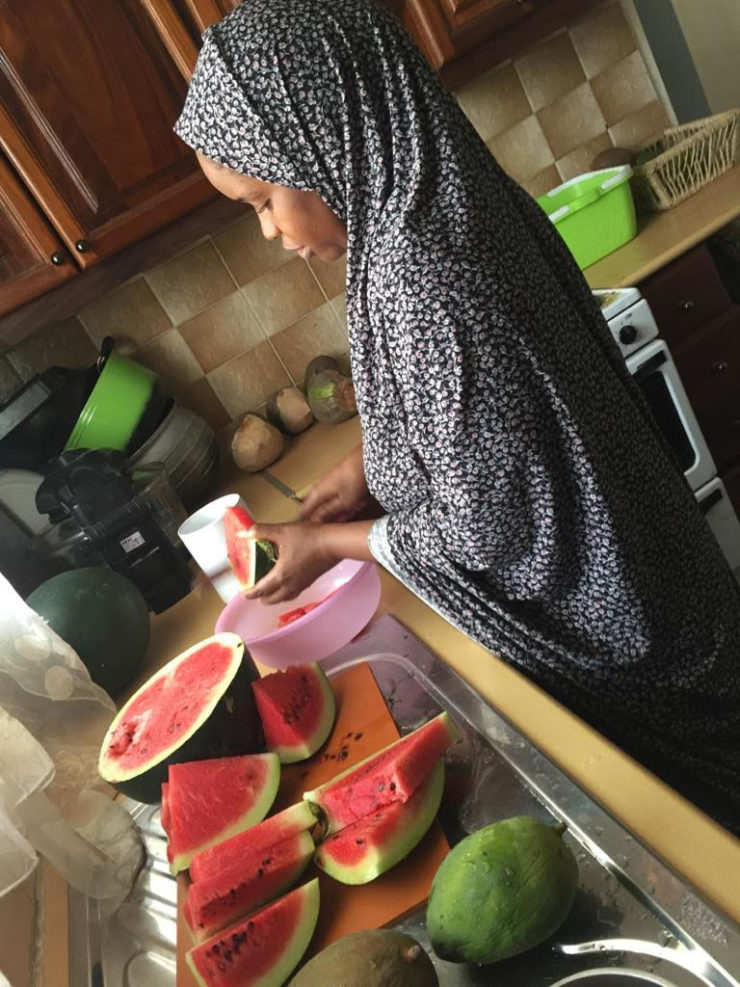
(Picture by Rashida Alhassan Adum-Atta)
Eating in Times of COVID-19
In spite of the pandemic, the Azan continuous to be heard, not to alert believers to convey for prayers, but this time just as a reminder of time; to wake up for Suhoor[3], Imsak[4] and for Iftar. Here, too, it is an “acoustic marker” which reminds Muslim listeners, and “flags an institutionalized link to Islamic ritual practice…” (Eisenlohr 2018, 98). In the early morning hours, this year I see fewer people eating together as compared to last year’s ethnographic experience. My interlocutors express their frustration about losing their communal identity during this year’s season. Some suggest that they are not at all motivated to eat alone during the early hours, others still meet with fewer participants. One of my interlocutors told me “as much as Ramadan is about praying to Allah, food is very necessary too”. Food vendors who provided their services primarily to bachelors and migrants who do not have kitchen spaces have withdrawn their services.
Subsequently, during Iftar, I noticed the presence of a group of men gathered near the Zurak park, at a time when public meetings have become virtually non-existent. Iftar marks the end of a fasting with a nice meal in the company of others, at home or in public places. I was drawn to the way they observed social distancing, with some of them even wearing a face-masks, and to the colorful chairs they sat on. This informal group named “Parliament” by the participants, with a membership of forty men, gather every day to observe Magrib and Isha, and also share dinner. They told me that COVID-19 had reduced their numbers, but not stopped them from dining together. Dauda, the leader who once lived in Madrid, told me they meet every day to pray, eat and discuss social issues. Eating in times of COVID-19, meant observing social distancing protocols.
(Pictures by Rashida Alhassan Adum-Atta)
Hajia Kande, the owner of a popular food joint, Banku Stars, told me that the patronage of her meals has reduced due to COVID-19. Her joint was usually crowded, but now it is visibly empty, making her have negative feelings about the effect of the pandemic on her business. Whiles some food joints do not do well, other develop new solutions to a situation: food delivery service. The Corona-virus is opening up opportunities for food delivery services. Not widely patronaged in the past, this has become the convenient way to maintain social distancing and swerve the corona virus. Hajia Sauda’s restaurant, a known food joint close to the popular Zurak park, makes a lot of sales from delivery services now. People now advertise fruit salad and Ramadan delicacies online and on social media platforms. Fast food chains such as KFC and Papaye have become very popular among many Muslim families in Madina Zongo, evidently causing local food sellers to lose out to these giant food chains. One of the newly opened outlets of Papaye is situated directly adjacent the University of Ghana’s botanical garden, few minutes away from Madina. Dispatch riders have become convenient mediums to have food delivered to various homes. One evening, on the eleventh day of Ramadan, I decided to purchase food from Papaye for my family. After feeling exhausted of having to take care of my young children, I decided to order the meal and finally get to test the home delivery services that I was informed of. I was intrigued, that the food was delivered within fifteen minutes of order. On arrival, I entered into a conversation with the dispatch rider and he confirmed that customers preferred food delivery to the traditional walk-in.
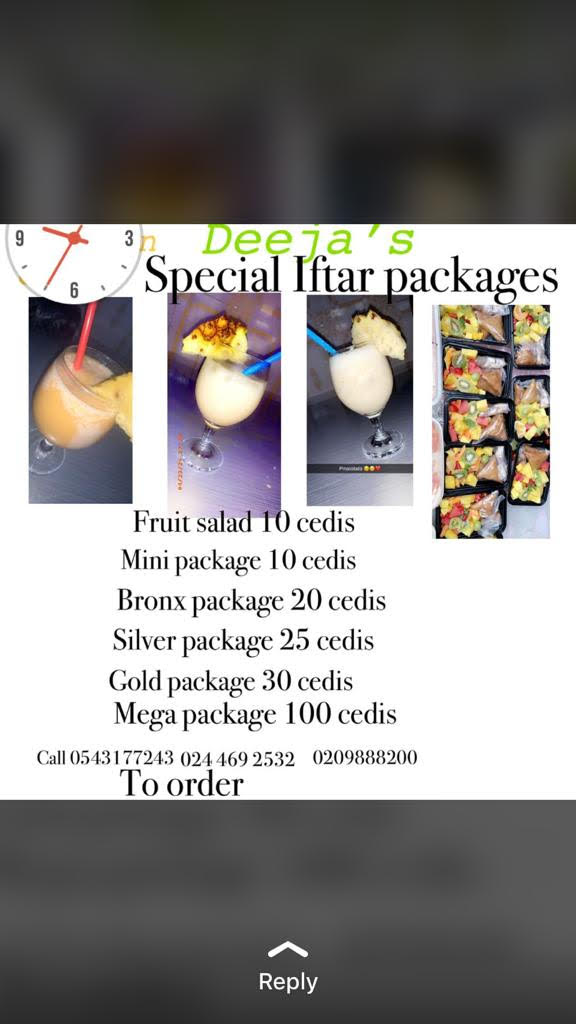
(Via WhatsApp)
Interestingly, meat sellers (charcoal grilled meat), popularly known in Zongo circles as Abochie, suggest that the fasting makes people crave for meat. As the meat seller Mohammed put it: “Corona or not, Zongo people like meat”. Could this assertion be true? I visited meat vendors with whom I have cultivated long-standing relationships and regular interactions, and they very much agreed with Mohammed’s statement. They agreed that their daily production and sales had increased since the start of Ramadan.
The complex impact of COVID-19 on the Ramadan cannot be underrated during this season of sharing and piety. COVID-19 seems to have affected all facets of life at Madina Zongo and I wonder what the long-term consequences of all this will be.
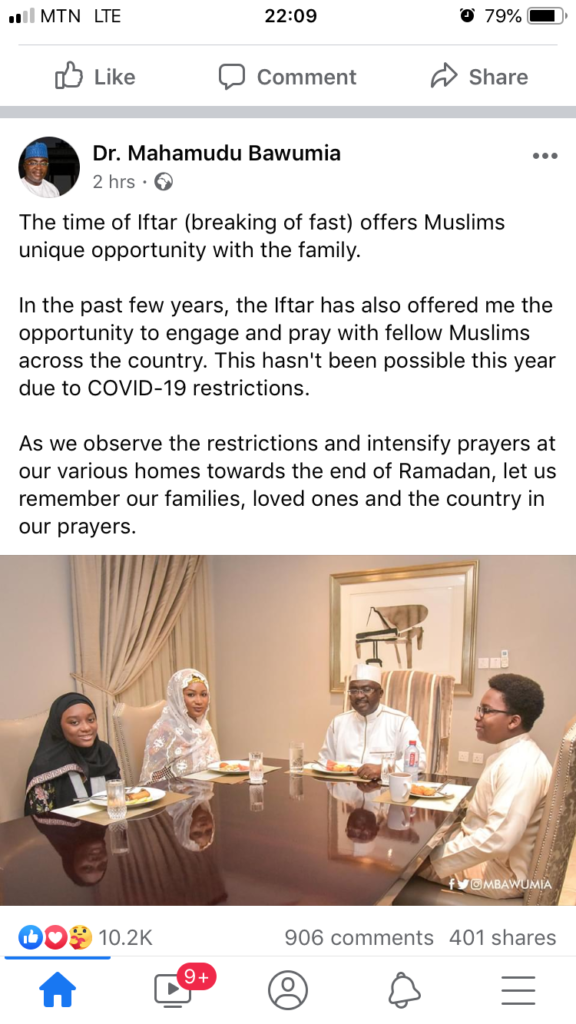
HE Dr. Mahamadu Bawumia to the
Muslim Community (Source Facebook).
This blog is a part of ‘Dossier Corona’, introduced by Religious Matters in the spring of 2020.
References
Patrick Eisenlohr, Sounding Islam: Voice, Media, and Sonic, Atmospheres in an Indian Ocean World. Oakland: University of California Press, 2018
Acknowledgement
Many thanks to Birgit Meyer, Rabiatu Ammah and Martha Frederiks, for their insightful comments. I am grateful to my colleagues on the Madina project; Kauthar, Joseph and Martin for their support. Thanks to Nabeel for his encouragement and comments. This blog is a part of ‘Dossier Corona’, introduced by Religious Matters in the spring of 2020.
[1] A meal consumed by Muslims at dawn before daylight hours during the Islamic month of Ramadan
[2] A meal taken after sunset during the Month of Ramadan to mark an end to a day’s fast.
[3] A meal consumed by Muslims at dawn before daylight hours during the Islamic month of Ramadan
[4] This is when Muslims are expected to stop the consumption of food, and a moment when the act of fast starts.

